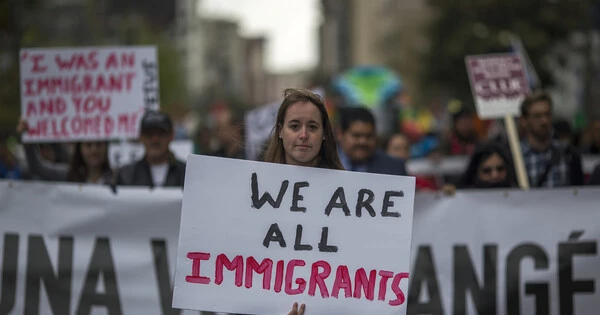Opposition to immigration, also known as anti-immigration, has become a significant political ideology in many countries. It refers to the position taken by certain individuals, groups, or political entities who are opposed to or critical of the movement of people from one country to another for the purpose of settlement or work. In the modern sense, immigration refers to the entry of people from one state or territory into another state or territory where they are not citizens.
Illegal immigration occurs when people enter a country without official permission. Opposition to immigration ranges from calls for various immigration reforms to proposals to completely restrict immigration, as well as calls for the repatriation of existing immigrants. There are several reasons why some people may oppose immigration, and these reasons can vary depending on cultural, economic, social, and political factors.
Here are some common arguments put forward by those who oppose immigration:
- Economic Concerns: One of the main concerns raised by opponents of immigration is the potential economic impact on the host country. They may argue that immigrants can compete for jobs with native workers, potentially driving down wages and making it more difficult for locals to find work. Some argue that immigrants may rely on public services and welfare benefits, putting an additional financial burden on taxpayers.
- Cultural Preservation: Some people are concerned that immigration will dilute or erode their country’s cultural identity. They may be concerned that a large number of immigrants from different countries with different languages, religions, and traditions will challenge the dominant culture and social norms.
- National Security: Critics of immigration often raise national security concerns, fearing that porous borders could allow potential terrorists or criminals to enter the country illegally and pose a threat to public safety.
- Strain on Resources: Opponents may argue that an influx of immigrants will put a strain on public services like healthcare, education, and housing, resulting in overcrowding and longer wait times for essential services.
Many people who are anti-immigrant are primarily concerned about illegal immigration. They believe that those who enter a country without proper documentation or by circumventing legal channels are breaking the law and should be deported. Some critics argue that immigration can cause native workers to be displaced, particularly in industries where immigrant labor is in high demand due to lower wages.
















